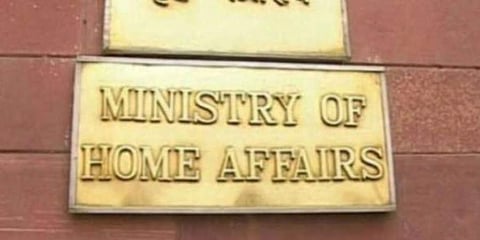

NEW DELHI: Removal of errors in comprehensive revision of new data collection on additional parameters and crime heads was cited as a reason by the Union Home Ministry for the delay in releasing National Crime Records Bureau's latest annual data -- 'Crime in India-2017'.
A day after the release of the much-awaited data, which was to be released last year, the Home Ministry issued a clarification, claiming "comprehensive revision was done in crime in India pro forma".
"New data collection and compilation software was prepared. Training of officials from states and UTs on the revised pro forma and data collection or compilation software was done. States and UTs were required to provide information on additional parameters/crime heads.
"Following persistent follow-ups since August 2018, the final data (after removal of errors/inconsistencies) was received only in July 2019. Therefore the delay in the publication of the report," said a Home Ministry statement.
As incidents of lynching were missing from the list of parameters and crime heads, the Ministry clarified: "It was observed that data received for certain newly created additional parameters/crime heads was unreliable and its definitions were also prone to misinterpretation. Accordingly, data related to certain parameters/crime heads has not been published."
The Ministry issued a list of 13 parameters or crime heads which consisted of vague or unreliable data.
On the list, the Ministry mentioned a parameter named 'Crime against various category of persons' which has different subsections such as crimes against journalists/media persons, RTI activists, whistle-blowers/informers, social workers or activists, witnesses and crimes against persons belonging to the north-east region.
Second on the list was 'Crime by Various Category of Persons' which also has several sub-headings such as crimes committed by religious preachers, by khap panchayats, theft by housemaids or servants, crimes committed by private security guards or private body guards, crimes committed by proclaimed offenders, by those on bail or parole or furlough, by illegal migrants and crimes committed by students.
The remaining crime heads include 'crimes committed by organized groups such as contract killers, hawala operators and liquor trafficker; honour killings under crime against women; rape during communal or sectarian violence; motives of murder such as hate crime, fake/false news/rumours; methods of murder such as lynching, merciless beatings, crushing by vehicle; crime committed with fire arms; SC/ST category in human trafficking (included on MHA's instructions); animal-related Acts: Cow Slaughter Acts (state/Central Acts), The Cattle Trespass Act and Prevention of Cruelty to Animal Act (state and Centre); prevention of Witchcraft or Witch Practices Act (state/Central Acts); human rights violation by Central Armed Police Forces (CAPF) and Defence Personnel; and snatching'.
Mentioning that the annual data for 'Crime in India' is furnished by the 36 states and UTs and 53 metropolitan cities, which have a population of 1 million (10 lakh or more as per population census 2011) by respective State Crime Records Bureaus (SCRBs) or Crime Investigation Departments (CIDs), the Ministry said the "NCRB has only compiled and collated the data and presented it in the form of this report".
"The NCRB is not responsible for the authenticity of the information, as data is being furnished by states/UTs/Central law enforcement agencies /CAPFs/CPOs."
Certain states such as Uttar Pradesh and Delhi have provided the citizen-friendly service of Online Registration of FIR under certain category of offences such as 'Vehicle Theft' and 'Other Thefts', the Ministry said. "As this may have increased the crime reporting under such heads in these states, they become statistically non-comparable with other states not having such online registration facility," the Ministry said.
"Improvements have been undertaken to make the report more comprehensive, informative and useful for the parliamentarians, policymakers, states/UTs, researchers, academicians and other stakeholders. Data is now being collected in greater detail for several categories of crimes. For example, under Cyber Crimes against Women and Children, crime statistics under Cyber Blackmailing/Threatening, Cyber Pornography, Cyber Stalking, Defamation/ Morphing, Fake Profile, Internet Crimes through Online Games have been collected."
The Ministry said that efforts have been made to include sub-section-wise information under section 376 IPC (rape) and that information on major crime heads such as kidnapping and abduction, causing death by negligence, hurt and grievous hurt, sexual harassment have been further "segregated" as per their respective sub-heads.
"Data has also been published under certain new acts such as Prevention of Food Adulteration Act and Chit Fund Act."
To capture the criminal justice system holistically, the Ministry said efforts have also been made to collect data on time taken for investigation (Indian Penal Code or Special and Local Law (SLL) cases), age profiling of cases under investigation(IPC and SLL cases), the time taken for trials (IPC crimes) and also for service of summons and warrants.